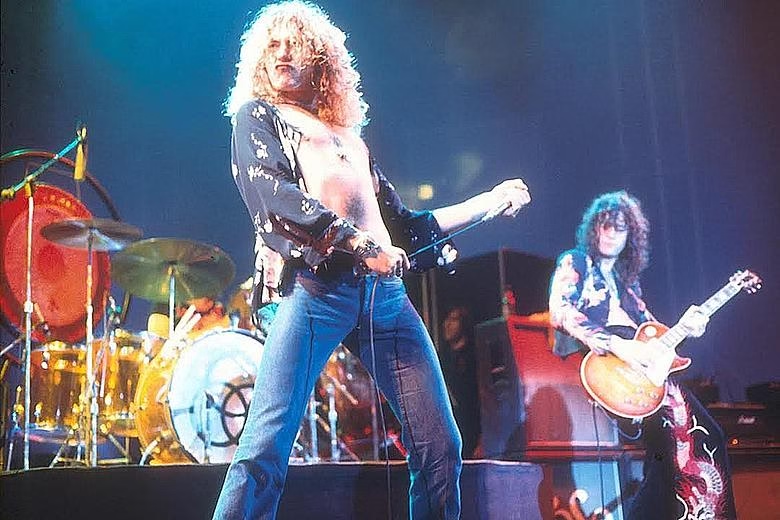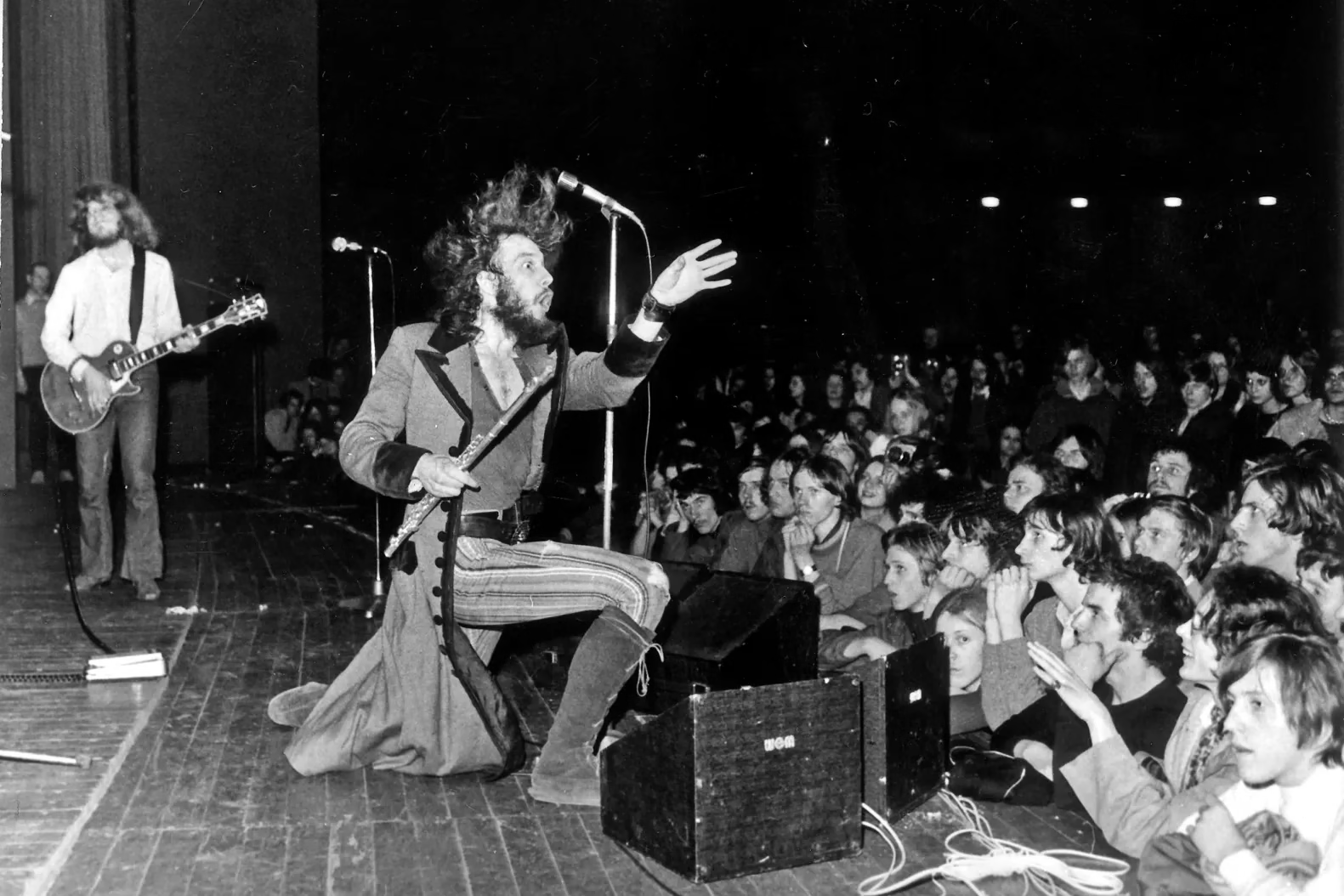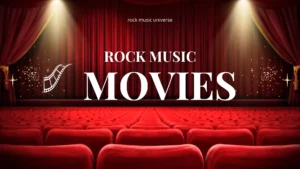The 25 Best Rock Bands of the 1970s (From 25 to 1)
The 1970s were a transformative decade for rock music. From the rise of progressive rock to the birth of heavy metal, from Southern rock’s grit to punk’s rebellion, the decade produced an astonishing variety of bands that shaped music history. Here’s a definitive countdown of the 25 best rock bands of the 1970s, ending with the one band that towers above them all: Led Zeppelin.
The 25 Best Rock Bands of the 1970s
25. Lynyrd Skynyrd
Southern rock found its anthem in Lynyrd Skynyrd. With triple-guitar firepower and heartfelt songwriting, they delivered classics like “Free Bird” and “Sweet Home Alabama.” Despite tragedy cutting their original run short in 1977, their music remains the heartbeat of Southern rock.

The 25 Best Rock Bands of the 1970s
24. The Ramones
The Ramones stripped rock to its raw essentials. Emerging from New York’s CBGB scene, their 1976 debut revolutionized punk with songs like “Blitzkrieg Bop.” Their fast, loud, and simple approach inspired countless punk, alt-rock, and grunge acts.

The 25 Best Rock Bands of the 1970s
23. Rush
This Canadian trio blended intellectual concepts with unmatched musicianship. Albums like 2112 (1976) and Hemispheres (1978) showcased Neil Peart’s complex drumming, Geddy Lee’s soaring vocals, and Alex Lifeson’s guitar mastery, cementing Rush as progressive rock innovators.

The 25 Best Rock Bands of the 1970s
22. The Clash
By 1979, The Clash had transformed punk into a political and cultural force. London Calling fused punk with reggae, ska, and rockabilly, proving punk could be musically adventurous and socially conscious. They were punk’s most ambitious band.

The 25 Best Rock Bands of the 1970s
21. KISS
KISS turned concerts into theater. With fire-breathing, face paint, and explosive shows, they created a spectacle unmatched in rock. Musically, their blend of glam and hard rock produced anthems like “Detroit Rock City” and “Rock and Roll All Nite.”

20. Yes
Yes epitomized prog rock ambition with symphonic arrangements and spiritual lyricism. Albums like Fragile (1971) and Close to the Edge (1972) pushed rock into orchestral territory, making them one of the decade’s most innovative bands.

19. Aerosmith
With Steven Tyler’s vocals and Joe Perry’s guitar, Aerosmith became America’s rock ’n’ roll swagger. Songs like “Dream On” and “Sweet Emotion” made them arena giants by the late ’70s, setting the stage for decades of dominance.

18. The Allman Brothers Band
Masters of bluesy improvisation, The Allman Brothers brought Southern rock to national prominence. At Fillmore East (1971) showcased their legendary jams, and even after Duane Allman’s death, they carried on as genre-defining icons.

17. ZZ Top
Texas’ bearded trio delivered gritty blues-rock grooves with songs like “La Grange.” With Billy Gibbons’ sharp guitar tone, they became ambassadors of blues-infused rock and laid the foundation for their massive 1980s success.

16. Genesis
Starting with Peter Gabriel’s theatrical prog and evolving into Phil Collins’ more accessible direction, Genesis balanced complexity and emotion. Albums like Selling England by the Pound (1973) highlighted their artistry, making them prog royalty.

15. Cheap Trick
Fusing power pop with rock grit, Cheap Trick made quirky anthems like “I Want You to Want Me.” Their live album At Budokan (1979) launched them worldwide, proving they could balance cult credibility with pop stardom.

14. Jethro Tull
Led by Ian Anderson’s flute and eccentric presence, Jethro Tull blended rock, folk, and classical influences. Aqualung (1971) and Thick as a Brick (1972) remain prog landmarks, showing rock could be witty, theatrical, and sophisticated.
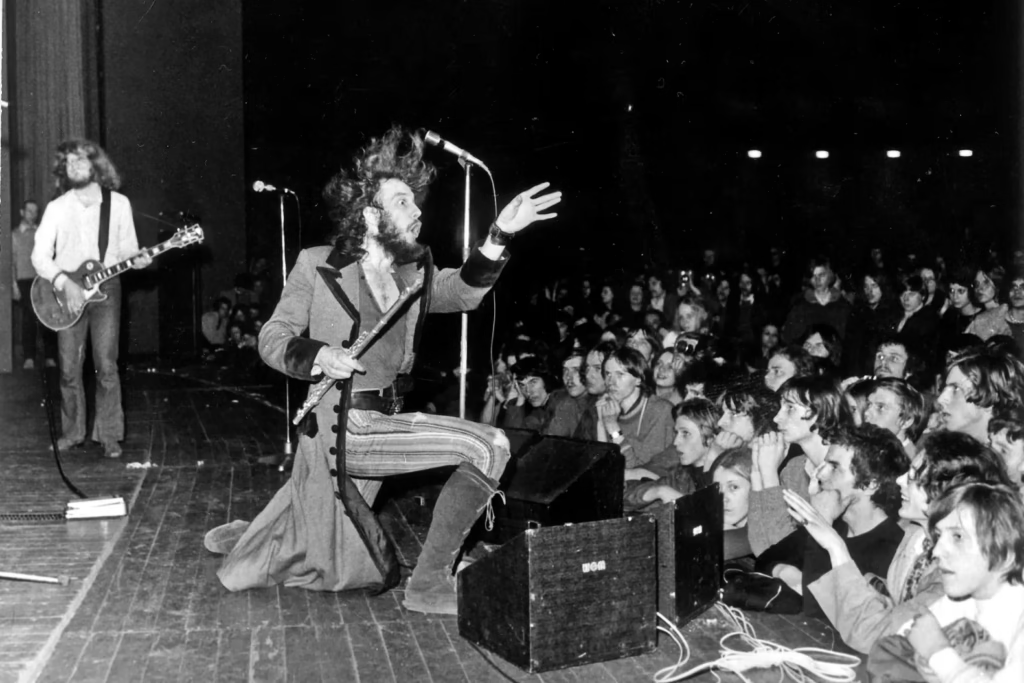
13. AC/DC
Pure, unfiltered hard rock. With Bon Scott’s rasp and Angus Young’s electrifying riffs, AC/DC made high-voltage classics like “Highway to Hell.” Their relentless energy and simplicity turned them into one of rock’s most enduring forces.

12. Eagles
The Eagles perfected country-rock harmonies and West Coast cool. With Hotel California (1976), they created one of the decade’s defining records. Smooth, polished, yet emotionally resonant, their music became the soundtrack of American rock.

11. Fleetwood Mac
Stevie Nicks and Lindsey Buckingham’s arrival reshaped Fleetwood Mac into a pop-rock juggernaut. Rumours (1977), born of personal turmoil, became one of the best-selling and most beloved albums ever, pairing drama with brilliance.

10. The Doors
Although Jim Morrison died in 1971, The Doors’ influence echoed throughout the decade. With their mix of psychedelia, blues, and poetry, albums like L.A. Woman ensured they remained one of rock’s most mysterious and legendary bands.

9. Deep Purple
Known for “Smoke on the Water” and their heavy, virtuosic style, Deep Purple bridged hard rock and proto-metal. Their live intensity and technical skill inspired generations of heavy rock and metal musicians.
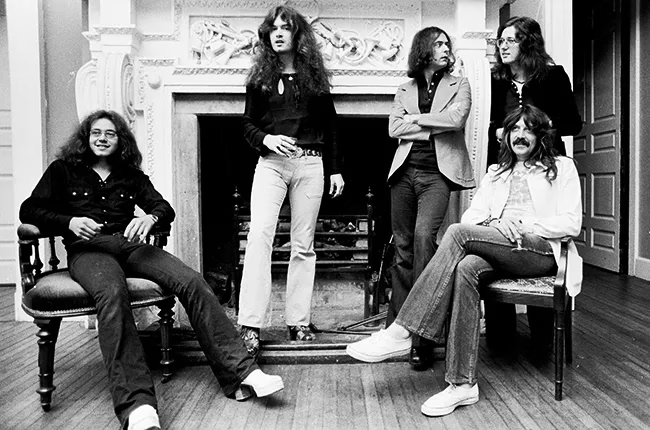
8. The Who
Pioneers of arena rock and concept albums, The Who combined aggression with depth. Who’s Next (1971) gave us anthems like “Baba O’Riley,” while Quadrophenia (1973) elevated the rock opera to high art.

7. Black Sabbath
The godfathers of heavy metal, Black Sabbath’s riffs and doom-laden sound defined an entirely new genre. Paranoid (1970) and Master of Reality (1971) reshaped rock, creating a darker musical path still followed today.

6. Queen
With Freddie Mercury’s unmatched stage presence and Brian May’s guitar wizardry, Queen blended operatic grandeur with rock swagger. A Night at the Opera (1975) gave us “Bohemian Rhapsody,” redefining the limits of rock artistry.

5. Bad Company
Formed in 1973 as one of rock’s first true “supergroups,” Bad Company featured Paul Rodgers (vocals, ex-Free), Mick Ralphs (guitar, ex-Mott the Hoople), Boz Burrell (bass, ex-King Crimson), and Simon Kirke (drums, ex-Free). With their bluesy swagger and straightforward rock anthems, they quickly became one of the decade’s biggest acts. Their debut Bad Company (1974) spawned classics like “Can’t Get Enough” and “Bad Company.” Rodgers’ soulful voice and Ralphs’ hard-hitting riffs made them a staple of FM radio and live arenas, ensuring their place among the 1970s’ essential rock bands.

4. David Bowie & The Spiders from Mars
While technically a solo artist, David Bowie’s 1970s work with The Spiders from Mars turned him into one of rock’s most transformative forces. With albums like The Rise and Fall of Ziggy Stardust and the Spiders from Mars (1972) and Aladdin Sane (1973), Bowie blended glam rock, art rock, and theatrical performance into something entirely new. Constantly reinventing himself—from Ziggy Stardust to the Thin White Duke—he blurred the lines between music, fashion, and identity, inspiring countless artists. Bowie’s fearless experimentation made him not only a rock star but also a cultural icon of the 1970s.
3. The Rolling Stones
The self-proclaimed “World’s Greatest Rock ’n’ Roll Band” lived up to their title throughout the 1970s. With Sticky Fingers (1971) and the sprawling Exile on Main St. (1972), they perfected the blend of blues, country, and rock swagger. Mick Jagger’s charisma, Keith Richards’ riff-driven guitar work, and the band’s ability to constantly evolve kept them at the forefront of popular culture. Unlike many of their peers, The Stones thrived in the ’70s despite the turbulence of the era, filling stadiums worldwide and embodying rock’s dangerous, rebellious spirit. Their gritty authenticity and endless energy made them icons not just of music, but of an entire cultural movement.

2. Pink Floyd
Few bands captured the mood of the 1970s like Pink Floyd. Known for their sonic experimentation and conceptual brilliance, they created some of the most enduring albums of the decade. The Dark Side of the Moon (1973) stayed on the charts for over a decade and remains one of the best-selling records of all time, exploring themes of time, greed, and madness. Wish You Were Here (1975) paid tribute to their fallen founder Syd Barrett, while Animals (1977) critiqued capitalism with biting intensity. By the decade’s end, The Wall (1979) delivered an epic rock opera that cemented their legacy as masters of atmosphere and storytelling. Their fusion of progressive rock, psychedelic soundscapes, and deep philosophical themes ensured Pink Floyd’s place as one of the most important rock bands in history.

1. Led Zeppelin
At the very top of the 1970s rock pantheon sits Led Zeppelin. Formed in 1968 but truly dominating the ’70s, Zeppelin redefined what a rock band could be. With Led Zeppelin IV (1971), they gave the world “Stairway to Heaven,” one of the most iconic songs in history. Physical Graffiti (1975) showcased their versatility, while Houses of the Holy (1973) and Presence (1976) pushed their sound in new directions. Jimmy Page’s guitar wizardry, Robert Plant’s golden voice, John Paul Jones’ musical versatility, and John Bonham’s thunderous drumming made them an unstoppable force both on stage and in the studio. They pioneered hard rock, influenced heavy metal, and filled stadiums like no one before them. Their mystique, raw power, and sheer ambition ensured their place not only as the greatest band of the 1970s but as one of the most important bands of all time.
